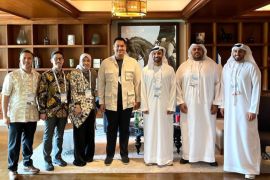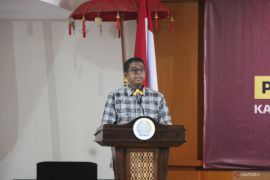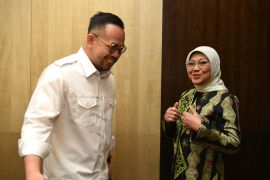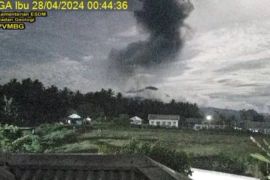If the government issues too many packages, this would lead to uncertainties and cause panic among investors, an economist said.Jakarta (ANTARA News) - Economist Destry Damayanti of Mandiri Securitas has expressed hope that the government will not issue too many economic policy packages in light of the global crisis.
"The government should not issue more than three policy packages. Two packages are adequate to avoid creating further uncertainty," Damayanti said at a press conference here on Monday.
She pointed out that if the government issues too many packages, this would lead to uncertainties and cause panic among investors.
"They could become panicked because uncertainties create worries; they would have difficulty in making market predictions," noted Damayanti.
Besides creating economic packages, the government also needs to establish a balance between the economy and regulations issued by Bank Indonesia (the central bank).
Earlier, Chief Economic Minister Darmin Nasution stated the government would soon issue a policy package comprising four groups of regulations to overcome various economic problems.
"There will be four groups (of regulations) in the policy package," Nasution said.
He explained that the four groups would focus on fiscal and financial matters; deregulation on investments in the industrial and trade sectors; incentives for the acceleration of smelter development; and the handling of food problems.
Nasution acknowledged that the policy package on fiscal and financial matters would consist of six to seven points that would regulate foreign ownership in the property sector and regulate debt to equity ratios, among other things.
"It will include regulations on the construction of houses or apartments by foreigners and regulations on the debt to equity ratio for foreign borrowings. If the capital is small, one should not borrow much money because doing so creates problems for all of us," Nasution noted.
There will also be regulations on the utilization of funds for village development so that the development of irrigation projects, bridges, roads, and so on in villages becomes more focused, he stated.
Nasution had previously said the government was planning to announce the second phase of its economic policy package at the end of September 2015. The government had announced the first phase of the package on Sept. 9, 2015.
He noted that the deregulation process outlined in the package recently announced by President Joko Widodo (Jokowi) would be completed this week.
The policy package calls for the abolition of several government and presidential regulations and presidential decrees to boost economic growth.
"We will complete the process in the second half of September, as the president will return from his visit to the Middle East on Sept. 15," Darmin stated at the Halim Perdanakusumah Airport after bidding farewell to President Jokowi and his entourage, as they departed on a four-day visit to several Middle-Eastern countries.
He said the process of deregulation was expected to be completed within three days of the return of the president.
He affirmed that the process of deregulation was underway.
"We have urged the government to expedite the administrative process so that it can be completed on Sept. 18," he emphasized.
He revealed that the implementation would start in the third week of September 2015, including monitoring and execution of the various stages.
The regulations to be included in the deregulation process are related to the development of 14 industrial estates, he claimed.
"What is important is the implementation. We have thoroughly considered all aspects and prepared everything that is needed," he noted.
In total, 134 regulations issued by 17 ministries/state agencies will be deregulated. These include 17 government regulations, 11 presidential regulations, two presidential instructions, 96 ministerial regulations, and eight other regulations.
The deregulation strategy is essentially aimed at expanding investment opportunities, Darmin affirmed.(*)
Editor: Heru Purwanto
Copyright © ANTARA 2015











